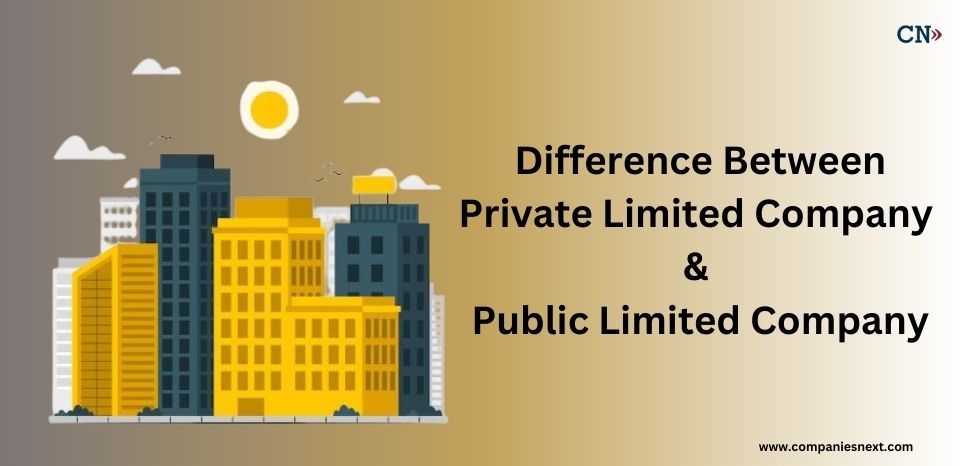
In the corporate world, differences between a Private Limited Company (Pvt Ltd) and a Public Limited Company (PLC) involves understanding their distinct characteristics and implications. These entities differ significantly in ownership structure, capital requirements, regulatory compliance, and governance practices, each catering to different business needs and growth strategies.
Ownership and Shareholders
Private Limited Company (Pvt Ltd)
A Pvt Ltd company is privately owned, typically by a small group of shareholders, including founders, family members, or a few investors. Key features include:
- Limited Number of Shareholders: Restricted to a maximum of 50 shareholders.
- Controlled Transfer of Shares: Shares cannot be freely traded or transferred without the consent of existing shareholders.
Public Limited Company (PLC)
A PLC is a publicly traded entity that offers its shares to the general public through stock exchanges. Key features include:
- Unlimited Shareholders: Can have an unlimited number of shareholders.
- Publicly Tradable Shares: Shares are freely traded on stock exchanges, providing liquidity and broader ownership.
Capital Requirements and Fundraising
Private Limited Company (Pvt Ltd)
Pvt Ltd companies typically have lower capital requirements and are easier to establish compared to PLCs. Key considerations include:
- Flexible Capitalization: No minimum capital requirement in many jurisdictions at the time of incorporation.
- Limited Access to Public Funds: Relies on private sources such as shareholders, loans, or venture capital for funding.
Public Limited Company (PLC)
PLCs must meet stringent capital requirements and regulatory standards before offering shares to the public. Key considerations include:
- Minimum Share Capital: Must meet minimum capital requirements as mandated by regulatory authorities.
- Access to Public Capital Markets: Can raise funds from the public through the issuance of shares on stock exchanges, enabling larger-scale operations and expansion.
Regulatory Compliance and Governance
Private Limited Company (Pvt Ltd)
Pvt Ltd companies face fewer regulatory obligations compared to PLCs, offering flexibility and privacy. Key aspects include:
- Minimal Reporting Requirements: Less rigorous financial reporting and governance standards.
- Controlled Management: Managed by founders or a small board of directors, facilitating faster decision-making.
Public Limited Company (PLC)
PLCs are subject to extensive regulatory oversight to protect shareholder interests and ensure transparency. Key aspects include:
- Stringent Reporting Requirements: Must comply with strict financial reporting standards and governance practices.
- Board Oversight: Governance structure includes a board of directors responsible for strategic decisions and representing shareholder interests.
Conclusion
Choosing between a Private Limited Company and a Public Limited Company hinges on factors such as business objectives, growth aspirations, funding needs, and regulatory preferences. Pvt Ltd companies provide control and privacy to a limited group of shareholders, whereas PLCs offer access to public funding and broader ownership. Understanding these differences is crucial for making informed decisions that align with your business goals and comply with regulatory requirements in today’s competitive business environment.




